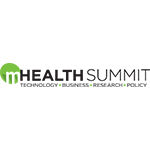How to Improve Healthcare Information System Security
The healthcare space deals with a lot of sensitive information about patients and their medical needs. Protecting this properly is essential to running an effective health organization. Fortunately, there are a number of solutions aimed at helping hospitals, clinics and other practices with this. Nonetheless, it can be challenging to achieve optimal security. These tips will help:
Start With the People
In almost all information systems, the biggest vulnerability is the behavior of the users. People make lots of mistakes. They open spam emails, they download questionable software, they use weak passwords and generally don’t worry too much about security. So, the most important thing you can do to improve security is to educate people.
An often-overlooked element of this is teaching people what to do if they make a mistake or otherwise suspect a threat. Don’t just train them on how to create better passwords or to not open suspicious emails. Also, teach them what to do in the event of an error.
Protect Data According to HIPAA
The Health Insurance Portability and Accountability Act of 1996 plays a big role in how healthcare organizations handle their data. It lays down a lot of rules for protecting and transmitting information about patients. It should be a major guideline for how you deal with your information systems.
First, you have to be in compliance with the act to legally handle patient information. Additionally, you will have a relatively strong system if you simply follow the rules.
Carefully Manage Access Permissions
Access permissions are at the heart of a lot of security strategies. These are the digital rights that you give to your users. People should have access to the information they need to perform their jobs and nothing more. For example, your system should only allow practitioners access to information on their current patients.
You can think of access permissions as rooms in a building. Your workspace likely has rooms that require keycard access or some similar system. This segments who is allowed in which areas of the building. Digital permissions should be conceptually similar but even stricter.
Integrate Carefully With Partners and Vendors
One of the challenges of securing any information system is the need to integrate with providers, vendors and partners. These third-party organizations can provide some invaluable features and functionality for healthcare organizations. However, there is always added risk when integrating.
Look for third-party partners that know their API security, data encryption and HIPAA requirements inside and out. Organizations that are really well-versed in their security protocols and industry best practices will typically provide sufficient security.
Implement Strong Password Policies
A lot of people have their children’s birthdays as their passwords. Alternatively, they may have chosen a short password of six characters. These types of passwords are extremely easy to break with social engineering (in the case of the first example) or brute force (in the case of the second example).
The best passwords are long and random. They shouldn’t have patterns that can be learned or exploited. Furthermore, they should be long enough that a computer can’t easily guess them. Of course, people have a hard time remembering such passwords. One good solution is to use single sign-on so users only have to remember one set of credentials.
Keep Systems Up To Date
Your software should always be up to date. Developers regularly find vulnerabilities and patch them out. However, many healthcare organizations are working on outdated software, especially on laptops and mobile devices.
Implementing good device updating procedures will help protect against a lot of avoidable vulnerabilities. This has the added benefit of ensuring that all your systems are working on the same version at the same time.
Learn More
The better you understand the essentials of information security and handling healthcare information, the stronger the digital foundations of your health organization will be. Get started today by implementing some of the above basics. As you progress, you can take things further and truly optimize your security.


























